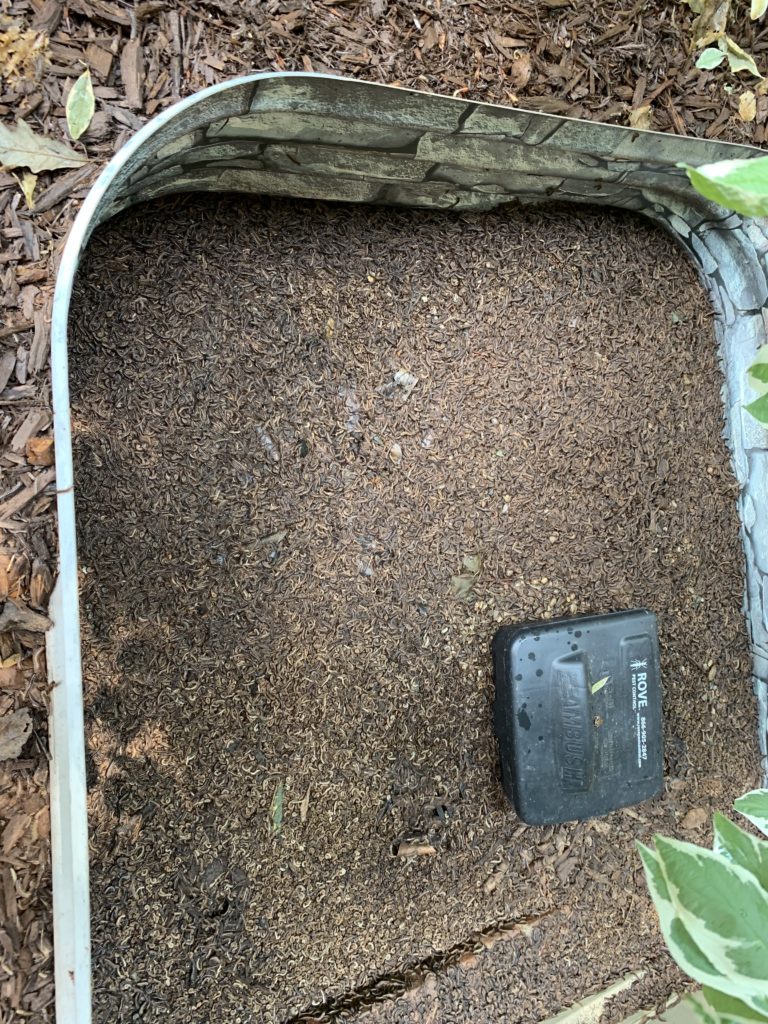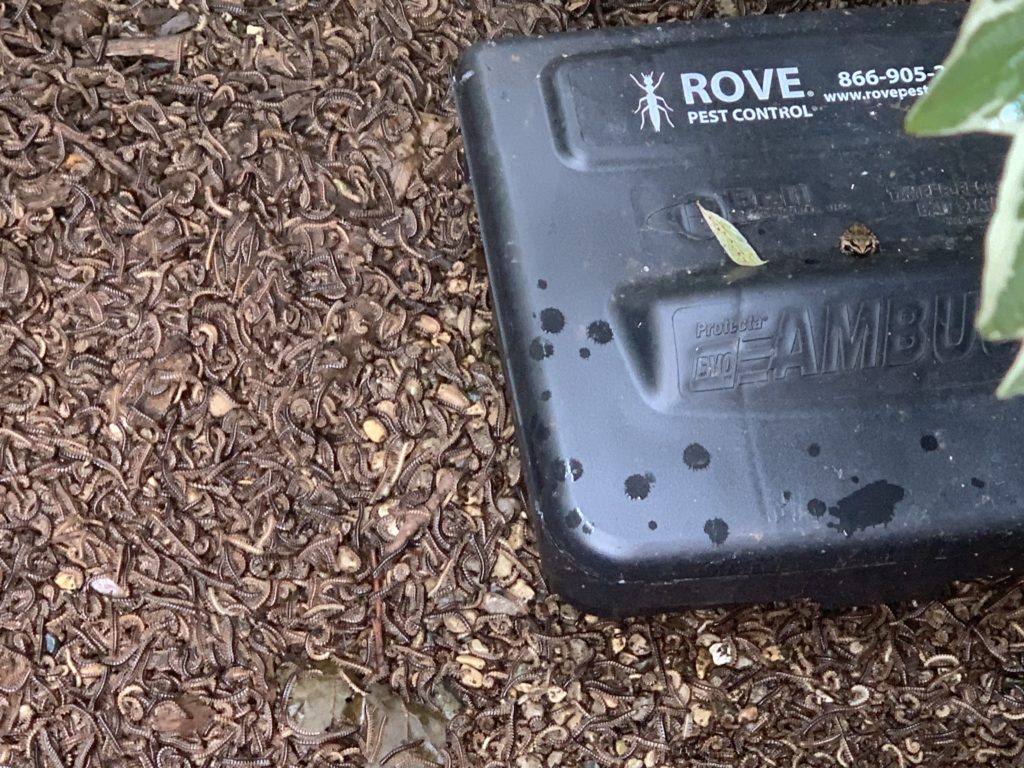At first glance, it just looked like mulch. It wasn’t until we get a little closer that the movement and details indicated otherwise. We run into this from time to time and the question always arises: What causes millipede explosions?

Explosions vs Migrations
The big difference between millipede explosions and migrations comes down to what the environment is like when the explosion occurs. If conditions are great for feeding and hanging around, those millipedes will do just that. If at some point the food runs out, they act like we do when a party runs out of food and a good time. We leave and hunt for the next exciting thing.

Explosion Drivers
Millipedes don’t just spontaneously show up in massive numbers. Conditions have to be right. Additionally, these conditions have to be right for several years in a row. These conditions include:
- Decaying organic matter (food to consume)
- Moist soil (good place to lay 300 eggs)
- Shelter (usually adequate if the first two conditions exist)
Decaying Organic Matter
Fallen leaves are the most common source of ideal Millipede habitats, but several other things can contribute such as:
- Landscape Timbers
- Mulch
- Ivy
- Thick foliage
- heavily watered thick lawns
- firewood stacks
- debris piles
Keeping track of these kinds of areas and minimizing them will minimize the millipede population. Even rotating unavoidable conducive locations significantly from one year to the next can help minimize the compounding population effect.
Migrate Where?!
Much like a house cat who found an open door, a millipede migration pattern is mostly unpredictable. They pretty much just scatter in every direction looking for the next best thing. Those that don’t find a good environment won’t be around for long, so the survivors are sure to end up in moist areas. These may be inside of the home in basements, bathrooms, etc.
Turning The Tables
Just because the millipede population exploded in your presence doesn’t mean you are stuck with them forever. Changing the environment will help curb the issue. Additionally, your local millipede experts at Rove Pest Control can help with some barrier controls to minimize their survival rates. Reach out to us to put together a plan to fit your needs.